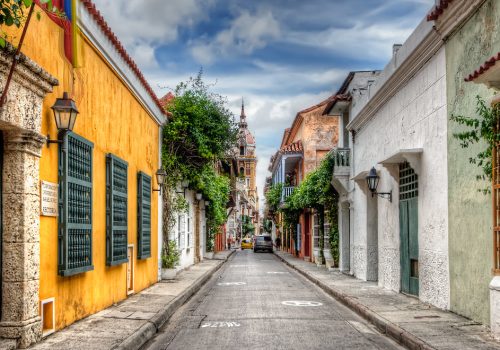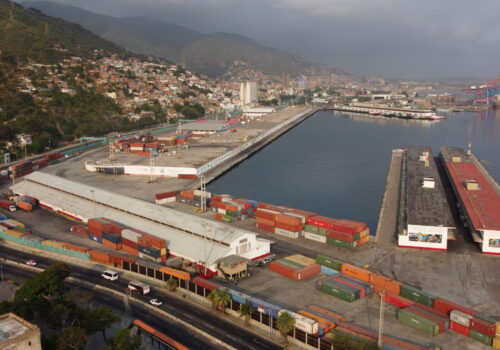How the US and Colombia can tackle crime, migration, and fallout from Venezuela’s crisis
Bottom lines up front
- While the United States seeks to prevent more migration from Venezuela, the strain of hosting 2.8 million Venezuelan migrants and refugees is putting Colombia on the back foot in its fight against transnational criminal groups.
- Bilateral efforts to improve security cooperation, reduce irregular migration sustainably, and improve opportunities for Venezuelan migrants and refugees in Colombia can benefit both countries.
- Colombia must balance between asserting regional leadership in managing the Venezuelan crisis—which requires a clear strategy—and keeping a communication channel open without legitimating Nicolas Maduro’s rule.
As the Trump administration recalibrates its policy toward Caracas, Colombia continues to grapple with instability caused in part by neighboring Venezuela. The number of Venezuelan migrants and refugees journeying to Colombia has plateaued, but the country’s resources are strained and its security situation is worsening as armed groups and criminal organizations continue to use Venezuela as a haven beyond the reach of the Colombian military. Meanwhile, the United States has cut foreign aid and centered its Venezuela policy around prisoner releases, deportations, and curbing migration. Despite differences in priorities and political approaches, opportunities exist for the United States and Colombia to engage in mutually beneficial actions that promote domestic and regional stability.
This issue brief, based on multiple consultations with US-Colombia Advisory Group members following a private expert briefing in December 2024, outlines the shifting dynamics in US and Colombian policy towards Venezuela. It makes recommendations for stronger US-Colombia coordination to promote stability in Venezuela and the broader region through diplomatic channels, security and intelligence cooperation, regional migration policy, and integration and regularization of migrants in Colombia.
View the full brief
About the authors
Lucie Kneip is a program assistant at the Atlantic Council’s Adrienne Arsht Latin America Center, where she provides strategic direction to the center’s work on Venezuela and Colombia. She has supported the work of the Venezuela Solutions Group and the US-Colombia Advisory Group and has coordinated events with high-level policymakers, business leaders, and civil society members from across the Americas. Together with Geoff Ramsey, she leads the center’s work on individual sanctions in Venezuela and created the Venezuela Individual Sanctions Tracker.
Geoff Ramsey is a senior fellow at the Atlantic Council’s Adrienne Arsht Latin America Center. Ramsey is a leading expert on US policy toward Venezuela and has traveled regularly to the country for the last decade. Before joining the Atlantic Council, Ramsey directed the Venezuela program at the Washington Office on Latin America where he led the organization’s research on Venezuela and worked to promote lasting political agreements aimed at restoring human rights, democratic institutions, and the rule of law.
About the US-Colombia Advisory Group
The Atlantic Council’s US-Colombia Advisory Group is a nonpartisan, binational, and multi-sectoral group committed to advancing a whole-of-society approach to addressing the most vital policy issues facing the US-Colombia relationship—with a recognition of the broader implications for bilateral interests across the region more broadly.
At its founding in 2017, the Advisory Group was co-chaired by Senators Roy Blunt (R-MO) and Ben Cardin (D-MD). Upon Blunt’s retirement, Senator Bill Hagerty (R-TN) assumed the honorary chairmanship alongside Cardin from 2023 until 2024.
Related content
Explore the program

The Adrienne Arsht Latin America Center broadens understanding of regional transformations and delivers constructive, results-oriented solutions to inform how the public and private sectors can advance hemispheric prosperity.
Image: An aerial view of the Catatumbo region, Colombia, on May 12, 2025. Since the escalation of clashes between illegal armed groups, Catatumbo has experienced an unprecedented humanitarian crisis: more than 66,000 people have been displaced to Tibú, Ocaña, and Cúcuta, and at least 126 people have been killed, according to official figures. Reuters/Ovidio González


